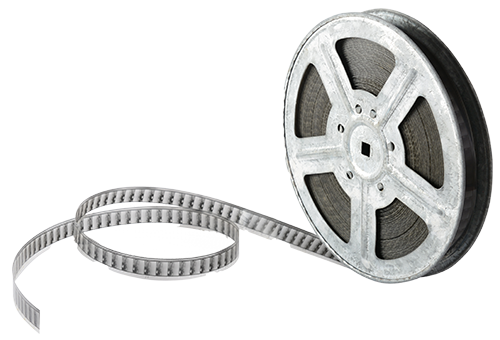
Not to be confused with 35MM Photography Film, 35MM is the standard film gague used in mainstream cinema. Created in the 1800s under a string of controversies regarding the original patents, the foramt's name refers to the width measurement of the medium. The larger size, opposed to the at-home consumer format, 8mm, allows for a greater amount of informaiton to be stored within the dimensions of the visual frame. This generally equates to a greater amount of perceived detail upon projection.
Until the (relatively) recent adoption of digital projection, standard movie theatres housed 35mm projectors as an industry standard, which mean that reels could be played in the majority of theatres around the globe. As the cinematic industry standard, later iterations would include the ability to record sound, with the advancement of technology.










